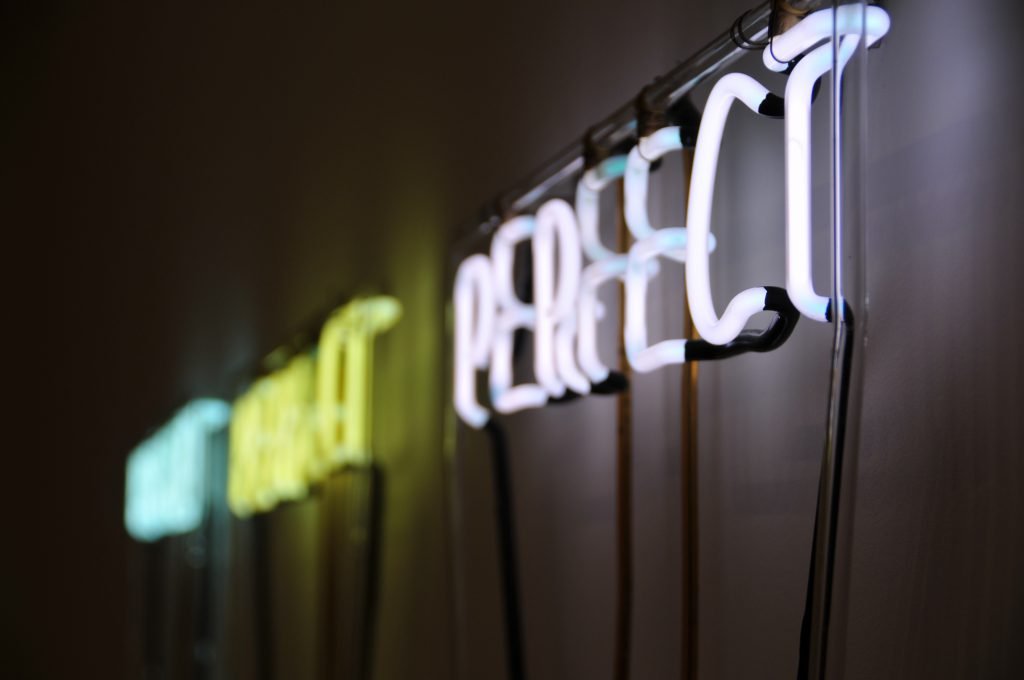Perfectionism: A Character Trait or a Fear?

Table of contents
Whether we realize it or not, so many of us are preys of perfectionism. Some of us take pride in this, going over each of our activities meticulously and wanting it to be perfect. Others of us feel paralyzed by the need to appear and seem perfectly fine to others; we get anxious thinking about how we seem to other people, what others think of our work, our potential, and performance. Regardless of how we view perfectionism, the question is worth asking: Is our perfectionism driven by our fear of being rejected or seen as unworthy?

“Fear fuels perfectionism.”
This is a statement which was put forth by Dr. David D. Burnsh and which underpins the ideas we’ll go over in this article. For those of us most addicted to perfectionism, the idea of being meticulous, productive, efficient, polished, poised, and successful is so warm and fuzzy. We may imagine a superhuman who can do everything so well; you’re widely loved and praised for your capabilities, performance, and can-do attitude… what’s wrong with being like that? Well, sure those are all positive attributes, but it’s not necessarily doing those things that’s the problem, it’s what happens when we don’t do all of these things at the same time. We beat ourselves up internally, we’re unkind and impatient with ourselves, and we spend energy and emotions worrying about what impact it may have on others’ opinions of us.
Those feelings of not being enough, failing, being a disappointment, and not doing your best can keep you from not only enjoying the present moment, but also learning to be in a healthy long-term relationship with yourself.

Where does perfectionism come from?
Perfectionism is trying to do whatever we’re responsible for in a perfect way. This approach, which leaves no room for mistakes, automatically devalues whatever we create should there be the slightest wrinkle or mistake. Reading these words, most of us can agree that it’s unreasonable and unrealistic to expect ourselves to do everything perfect, but on a day to day basis, it can be difficult for us to resist being hard on ourselves. Especially in a world with countless filters, staged photos, and photoshop, we want everything we do to look beautiful and polished. We spend an increasing amount of time wondering what others are thinking about us, which only drives us to perfect even more. It becomes less comfortable talking about our failures, imperfections, struggles, and flaws because we worry more about what people will think or say if they knew certain things about us. We fear disconnection and rejection.
We have to admit this to ourselves; we are hardwired to want love, acceptance, approval, and connection. We yearn for others’ acceptance of us and for genuine relationships. Most of us have always been brought up in a culture and home that pushes us to strive for perfection. Think of your childhood. If people weren’t telling us to get better grades, perform better at a sport, or apply our best selves to each activity, they were scolding us for not doing each activity better. Many of us grew up with the notion that being ourselves isn’t enough to be loved, that we have to make an extra effort and begin striving towards perfectionism at an early age.
3 Types of Perfectionism
In 2002, Dr. Gordon H. Flett and Dr. Paul L. Hewitt laid out 3 kinds of perfectionism:
Self-Directed Perfectionism
Setting impossible-to-meet expectations for yourself.Perfectionism Directed to Others
Expecting others to meet impossible standards and consequently refusing to give more responsibility to others, taking on more responsibility you’re able to or damaging a relationship because of mutual displeasure.
- Societal Perfectionism
Believing that certain standards cannot be met by individuals alone and trying to meet them all the more as a result.

Perfectionism As A Weapon of Survival
Societal Perfectionism is probably the most impactful kind of perfectionism there is. According to a study done in the US after 1989, societal expectations of perfectionism put on the shoulders of the younger generations began to sharpen. As a result, younger generations have begun to feel that they’re inflicted to harsher criticism than past generations were and started to push themselves to impossible lengths just to prove themselves.
The competitive dynamic that this has created in the age that we live in has prioritized the group mind over that of the individual. These two factors have stoked the belief that “we need to work harder to be loved” and that we need to be ever more perfect, no matter how damaging, tiring and wearying that road may be.
This kind of behavior and mindset, which begins taking shape during our childhoods and picks up speed during adolescence seeps into adulthood as well. Think of all of the different times just during this past week when you’ve felt like you didn’t do something well enough, when you wondered about what someone else thought of your work or life, or when you were obsessively trying to make something more perfect.
Ask yourself: how would you talk to a friend who was going through the same struggles, having the same thoughts, or beating themselves up the way you do yourself? Most of us would use much softer and kinder words with them; we would tell them they’re being silly to obsess over such a small thing. That everyone makes mistakes and that no one can do everything at the same time perfectly. So why don’t we talk to ourselves the same way?

The Perfection You’re Chasing After Isn’t Real
It’s impossible for any being, situation or individual to be perfect. Something or someone may seem perfect from the outside, but everyone has their own faults and assets. Everyone is unique and while this might not make us perfect, it does mean that we are all special in our own way. It means that we exist.
If we were to look at perfectionism from a scientific point of view, we’d be able to better understand nothing can be perfect. Some may claim that the Solar System we live in is perfect but that’s not the case. While the universe may be 9 billion years old, our solar system has only existed for the past 4,5 billion years. The sun has gone through incredibly violent, chaotic phases and while it may be relatively calm, one day it will disappear. Can we talk about perfection in an ever fluctuating, unstable design? One where energy is in constant motion, transformation and is trying to find its own way? Knowing that we will be a part of this flow of ups and down, can we be more patient and kinder to ourselves? Can we remind ourselves that we’re doing our best, and that even when we make mistakes, we’re growing and evolving in real time?
Stop waiting for perfection to start living
What was the last thing you postponed when you were chasing after perfection? Which project did you stop yourself from taking on because you didn’t feel you were ready, not perfect enough to execute it? Waiting for perfection begets procrastination, discontent, confusion, and fear. Waiting to be perfect to start that business, or waiting for your finances to be perfect until you have a child, waiting to wear that bikini until your body looks perfect—by waiting for perfection, we rob ourselves of the present joys and sources of happiness and growth.
So, instead of chasing after a perfection which doesn’t really exist anyways, why not chase after the possibilities of today?
We’d love to hear from all of our Meditopia self-proclaimed perfectionists on how your inclination to do everything perfectly can stop you from new experiences and activities.
What’s one thing you’d like to start telling yourself whenever you feel like you’ve made a mistake, not done your best, or failed. Let’s share with each other positive affirmations to express kindness and patience with ourselves!
Translator: Zeynep Şen





